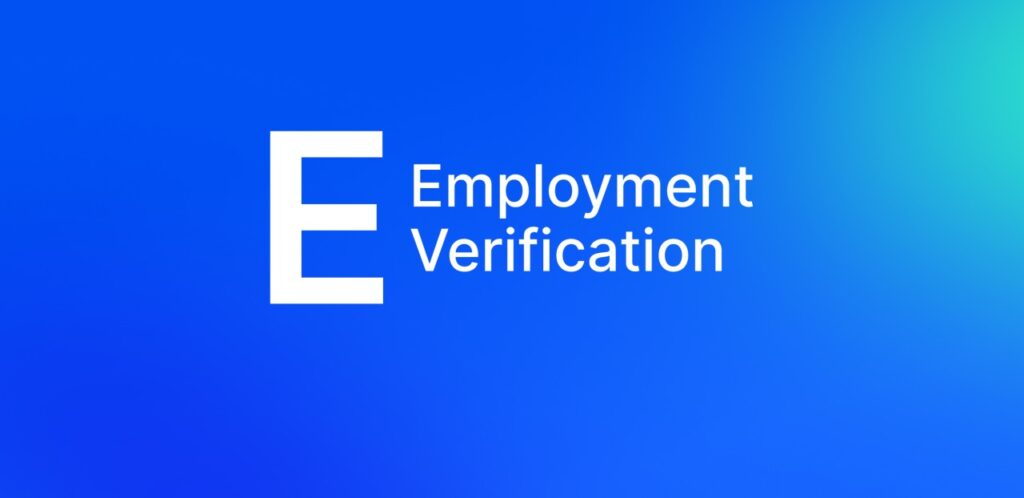In today’s fast-paced world, ensuring the authenticity of a potential employee’s credentials is vital for both employers and employees alike. Employment verification serves as a crucial step in the hiring process, providing employers with confidence in their hiring decisions while offering employees a sense of security in their professional endeavors.
What is Employment Verification?
Employment verifcation is the process through which employers confirm the employment history, credentials, and qualifications of a job applicant. It involves validating the accuracy of information provided by the applicant regarding their past employment, educational background, and other relevant details.
Employers often conduct employment verifiation to verify the authenticity of a candidate’s resume and ensure that they possess the necessary qualifications and experience for the job.
Methods of Employment Verification
Traditionally, employment verfication involved contacting previous employers directly via phone or mail to verify the information provided by the candidate. However, with technological advancements, modern approaches such as online databases and background check services have become increasingly popular.
Online platforms and background check companies offer convenient and efficient solutions for verifying employment history, educational credentials, and other pertinent information. These methods streamline the verification process, saving time and resources for employers.
Benefits of Employment Verification
Employment verfication offers numerous benefits for both employers and employees. For employers, it helps ensure the credibility of candidates, mitigates the risk of hiring unqualified individuals, and ensures compliance with legal regulations.
By verifying employment history and qualifications, employers can make informed hiring decisions, leading to a more qualified and reliable workforce. Additionally, emplyment verification helps protect employers from potential liability issues that may arise from hiring individuals with false credentials.
For employees, employment verfication provides assurance that their qualifications and experience are accurately represented, enhancing their credibility in the job market. It also helps prevent identity theft and fraudulent activity by ensuring that personal information is handled securely during the hiring process.
Challenges in Employment Verification
Despite its benefits, employment verification comes with its own set of challenges. Identity theft, fraudulent documentation, and privacy concerns are among the most significant issues faced by employers during the verification process.
Identity theft occurs when individuals use stolen or falsified documents to misrepresent their identities and qualifications during the hiring process. This can lead to serious consequences for both employers and employees, including legal liabilities and reputational damage.
Fraudulent documentation, such as fake diplomas or fabricated employment records, poses another challenge for employers conducting verification checks. Detecting and verifying the authenticity of such documents requires diligence and thoroughness on the part of employers.
Privacy concerns also arise due to the sensitive nature of the information involved in employment verifcation. Employers must ensure that they adhere to strict privacy regulations and guidelines when handling and verifying personal data to protect the rights and privacy of job applicants.
Best Practices for Employment Verification
To overcome these challenges, employers should follow best practices when conducting employment veification. This includes establishing a standardized verification process, requesting relevant documentation from job applicants, and ensuring compliance with legal regulations.
Employers should verify employment history, educational credentials, and any professional certifications relevant to the job position. They should also obtain consent from job applicants before conducting verification checks and handle personal information with the utmost confidentiality and security.
Employment Verification in Different Industries
Employment verifiction is essential across various industries, including healthcare, finance, and government. In the healthcare sector, verifying the credentials of medical professionals is critical to ensuring patient safety and quality of care.
In the finance industry, where trust and credibility are paramount, employment veification helps prevent fraud and financial misconduct by ensuring that individuals possess the necessary qualifications and experience for their roles.
Government agencies rely on employment verfication to uphold integrity and security in public service positions, ensuring that individuals entrusted with sensitive information and responsibilities are qualified and trustworthy.
Tools and Services for Employment Verification
A wide range of tools and services are available to facilitate employmnt verification processes. Online platforms such as LinkedIn and professional networking sites provide valuable insights into candidates’ professional backgrounds and connections.
Background check companies offer comprehensive verification services, including criminal background checks, credit history checks, and employment verification. These services help employers verify the authenticity of candidates’ credentials and make informed hiring decisions.
Employment Verification Laws and Regulations
Employment verification is subject to various laws and regulations designed to protect the rights of job applicants and ensure fair and transparent hiring practices. The Fair Credit Reporting Act (FCRA) and the Equal Employment Opportunity Commission (EEOC) guidelines outline the legal requirements and responsibilities of employers regarding employment verification.
Employers must comply with these regulations to avoid potential legal liabilities and penalties. This includes obtaining consent from job applicants before conducting background checks, providing applicants with copies of the reports, and adhering to strict confidentiality and security measures when handling personal information.
Future Trends in Employment Verification
Looking ahead, technological advancements are poised to transform the landscape of employment verification. Innovations such as blockchain technology offer secure and decentralized solutions for verifying and storing employment records, enhancing transparency and efficiency in the verification process.
Blockchain-based platforms enable individuals to maintain control over their credentials and share them securely with prospective employers, reducing the risk of fraud and identity theft. These developments herald a new era of trust and credibility in employment verification, paving the way for more reliable and streamlined hiring processes.
Case Studies
Several case studies highlight the importance and effectiveness of employment verification in ensuring credibility and integrity in the workplace. Successful implementation stories demonstrate how employers have leveraged verification processes to make informed hiring decisions and build a qualified and trustworthy workforce.
Challenges faced and overcome provide valuable insights into the complexities and nuances of employment verification, highlighting the importance of diligence, accuracy, and compliance with legal regulations in the verification process.

